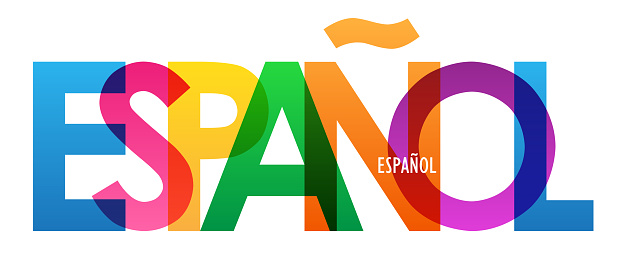
#MEGA Make Español Great Again... Call it whatever you wish... Learn Spanish Online, Teach Español Virtually... etc.
Imaginus Media is offering a Sapanish-language course for adults. Therefore, if you wish to learn the second most popular language in the #USA. step right this way. CityImages3@gmail.com
We accept adults on a first-come-first-served basis. Registration is being done online. A thirteenth-century borrowing from Old Occitan Espagnol, Catalan Espanyol, Portuguese Espanol, French Espagnol, from Vulgar Latin Hispaniolus of Spain, from Latin Hispānus, from Hispānia.
All of the nations and territories that have Spanish as their majority language are Argentina, Bolivia, Chile, Colombia, Costa Rica, Cuba, Dominican Republic, Ecuador, El Salvador, Equatorial Guinea, Guatemala, Honduras, Mexico, Nicaragua, Panama, Paraguay, Peru, Puerto Rico, Spain, Uruguay, Venezuela The number is their population.
Mexico 130,262,216
Colombia 51,265,844
Spain 46,745,216
Argentina 45,605,826
Peru 33,359,418
Venezuela 28,704,954
Chile 19,212,361
Guatemala 18,249,860
Ecuador 17,888,475
Bolivia 11,832,940
Cuba 11,317,505
Dominican Republic 10,953,703
Honduras 10,062,991
Paraguay 7,219,638
Nicaragua 6,702,385
El Salvador 6,518,499
Costa Rica 5,139,052
Panama 4,381,579
Uruguay 3,485,151
Puerto Rico 2,828,255
Equatorial Guinea 1,449,896
Spanish is the official national language in dozens of countries, in Latin America and one in Europe and Africa.
According to phonetic rules, if inherited from Latin, the Castilian Spanish result would have been españuelo (though some argue that this did not take root because the suffix -Suelo would be perceived as diminutive; more likely, it was simply because there was no need at the time for a common secular name for all the inhabitants of Christian Iberia Spain. The word Español was imported by a medieval chronicler.
In Old Spanish, there was also a form españón which disappeared after the first half of the 14th century, possibly derived from a Vulgar Latin *Hispaniōnem. Compare also Espanesco, the word Mozarabic speakers used for themselves, presumably from a Vulgar Latin Hispaniscus. Nevertheless, making small talk in Spanish is not very difficult. The Latin culture lends itself to approaching new amigos.
Professor Soto is the type of person who would start a conversation with a stranger with What's up, or ¿Qué Pasa? This course will help you do it in Spanish by helping students find phrases and much more.
Professor Roberto FE Soto recalls his connection to Tu Futuro El El Presente an educational TV program and with the sitcom ¿Qué Pasa, USA? quepasausa.org He was one of the original faculty members at Miami-Dade Community College's Bi-lingual program with Jose Bahamonde, one of the creators of ¿Qué Pasa, USA? America's first bilingual situation comedy, and the first sitcom to be produced for Public Broadcasting. It was produced and taped from 1977 to 1980 in front of a live studio audience at PBS member station WPBT in Miami, Florida, and aired on #PBS member stations nationwide. Professor Roberto FE Soto is being recognized with a faculty appointment for his dedication to education and for serving his students.
The following are comments made about this multilingual communicator https://www.ratemyprofessors.com/search.jsp?queryoption=HEADER&queryBy=…